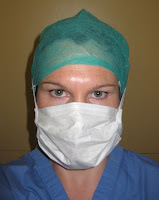
|
Not a vet yet!
|
- The Royal Veterinary College (RVC in London)
The competition for places is extreme, and the entry requirements as a result are very high. I didn't realise this when I decided this was my calling in life! There are no concessions for mature students - everyone has to meet the entry requirements and all are considered on an equal basis. Offers can typically be AAA or higher at A level (+ an additional B at AS/A level for some of the schools). Biology, chemistry and maths/another academic subject are required, plus excellent GCSEs including the sciences.
There are also minimum requirements for practical work experience with vets and on farms/other animal-based work places which varies for each school. Liverpool currently demands the highest minimum, at 10 weeks.
Some vet schools also use BMAT (the BioMedical Admissions Test) results as an extra filter. The personal statement part of the UCAS form is also considered when the vet schools are deciding who to call for interview.
Interviewing can go from November right through to March, which is a lot of time to wait, wondering... The lucky people who are offered a place after interview embark on a five year veterinary science/medicine degree (or six years at Cambridge). This is the basic D100 vet med course that equips you with the skills and knowledge to practice as a vet. There is also a D101 course which takes 6 years with an intercalated degree (so you come out with two degrees, which is the standard approach at Cambridge), plus various foundation courses now offered by most of the schools which lead into the D100 course.
Once you've survived vet school, passed your finals, and completed the required 38 weeks of extra mural studies (EMS) you qualify! The massive EMS requirement spread over the 5 years mean slaving away on farms or seeing practice at vets when other uni students get holidays!
You are then eligible to register with the Royal College of Veterinary Surgeons (RCVS), which allows you to practice in the UK as a vet. This also means you get more letters to stick after your name and degree: the hallowed MRCVS! Holders of foreign veterinary degrees which are not ratified by the RCVS must sit standardised exams in order to register as an MRCVS and be able to practice in the UK.
The vet degree qualifies you for general practice - you know about companion animals, farm animals, horses, and a bit about exotics, and can work in a first-opinion practice. If you want to go on to specialise in a particular area then that can mean a year or more as an intern, followed by two to three more years doing a residency, all on minimal wages and seemingly working/on call for every hour of every day for the duration!
Anyway, back to the beginning - I've decided which vet schools I'm applying to (finally!) and have started off my UCAS application. Exciting times! Watch this space to find out which ones I've chosen and why.